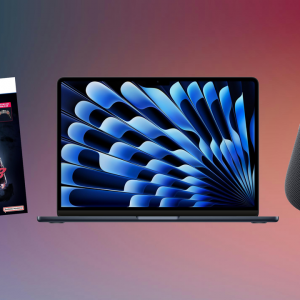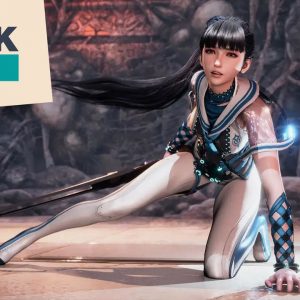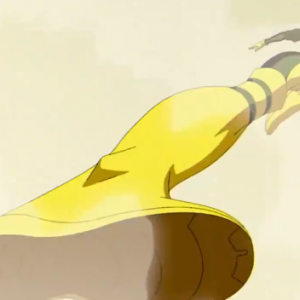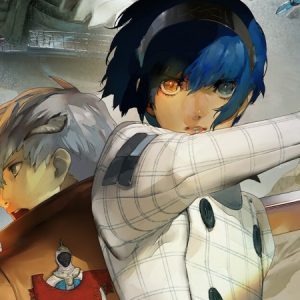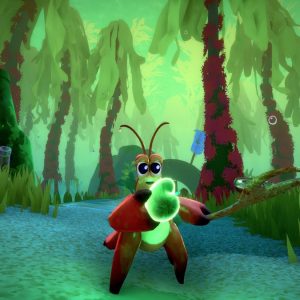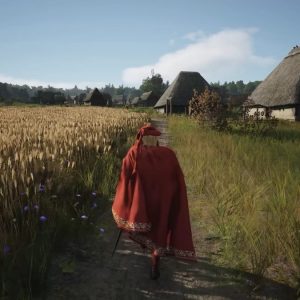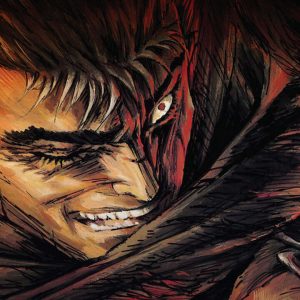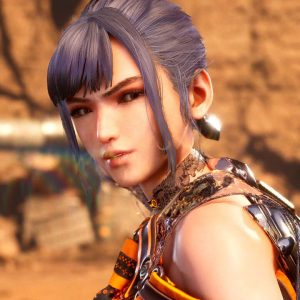Choosing your main character’s class in a role-playing game is often the most important (and first) major decision you’ll make. With a universe as expansive as The Forgotten Realms, where Baldur’s Gate 3 takes place, there are also lots of classes to choose from. From classics like Fighter, Wizard, and Rogue, to more niche classes, such as Warlock, Bard, and Druid, there is a lot of flavor here, and there are many powerful abilities spread throughout the roster.
If you have trouble picking, or simply want to make an informed decision, I’m here to help. With 12 fully-customizable classes to choose from, as well as seven pre-made characters with unique stories of their own, I’ll go through what each class does, their power (relative to other classes), and which one you should choose for your lengthy journey through Faerun.
Baldur’s Gate 3 – Which Class To Pick
The 12 selectable classes in Baldur’s Gate 3 are as follows:
- Barbarian – A powerful strength-based, melee-focused class with high health and berserker rage.
- Bard – A charisma-based utility class with minor healing abilities, buffs, debuffs, and plenty of charm. With tons of flexibility and high charisma, they are a great pick for any team composition (and for being the main character).
- Cleric – A wisdom-based class, sturdy and strong, with healing and buffing spells.
- Druid – A wisdom-focused caster with both offensive and restorative abilities, and shapeshifting powers that make them more flexible.
- Fighter – A versatile, strength-based class that is equally at home in melees or at range, they can use all armors, most weapons, and can stack multiple attacks per turn to demolish enemies.
- Monk – This minimalist, dexterity-based class is focused on dealing high unarmed damage, being nimble, and using Wisdom to supplement their armor class.
- Paladin – Sworn by an Oath, these strength-based warriors are stout and powerful, able to hit hard with weapons and heal or harden defenses with their spells. Follow the tenets of your Oath, or face the consequences.
- Ranger – These dexterity-based combatants excel at range, but can also engage up close, and although they lack the high defense of most other melee classes, their tamed beast evens the odds.
- Rogue – There is no lock this dexterity-based class can’t open. They excel in ranged combat, bonus sneak attack damage, and bring utility in dealing with traps and locks.
- Sorcerer – This charisma-based spellcaster is all about quantity and flexibility. While they know a smaller number of spells than the wizard, they don’t need to prepare them before battle, instead letting them choose whichever spell they want in the moment, spending Sorcery points to increase their functionality.
- Warlock – Knowing the fewest spells of the spellcasters, charisma-based Warlocks always cast them at the highest possible level, meaning fewer spells that pack a bigger punch. They also have access to better armor and more weaponry. Their primary cantrip, Eldritch Blast, is powerful (and becomes more powerful as you level up), meaning they get to trade versatility to be the most consistent of the casters as far as damage-dealing is concerned, and arguably the most powerful on a ‘cast by cast’ basis.
- Wizard – The classic spellcaster, this intelligence-based class is the most versatile, but also requires the most preparation. You can spend gold to learn spells from scrolls, permanently adding them to your spellbook (something Warlocks and Sorcerers can’t do), but you’ll need to memorize a spell for each of your spell slots and prepare for what you think comes next.
Who to play for flavor and role-playing
When picking the class for your main character (MC), there are a few things to keep in mind. First, there are no ‘bad’ classes in Baldur’s Gate 3, and even if you build them without optimizing, there is a ton of fun to be had. As anyone who has played pen-and-paper Dungeons & Dragons can attest, some of the most fun you can have is when things go wrong.
With that having been said, if there is a particular class with a flavor you like, don’t hesitate to choose them. If you love forbidden knowledge (or H.P. Lovecraft), the Warlock’s ‘eldritch bargain with forces beyond space and time’ might be just up your alley. If you love the outdoors, you could be into the druid’s affinity for all things nature.
Baldur’s Gate 3 Everything to Know
Please use a html5 video capable browser to watch videos.
This video has an invalid file format.
Sorry, but you can’t access this content!
Please enter your date of birth to view this video
By clicking ‘enter’, you agree to GameSpot’s
Terms of Use and Privacy Policy
Additionally, there are lots of points of differentiation, given all the sub-classes, if you like the idea of playing a ranger (and having a pet), but you prefer to fight in melee range, there is a sub-class and focus for that, and you can absolutely make that work.
If none of the classes really jumps out at you, you can always follow the advice of Sanford Kelly from the fighting games community and “just pick a top tier” class. If you want to follow his sage advice, check the tier list down below, and just pick the most powerful one you like.
Picking for team-building
If you have played some of the Early Access build, or have seen trailers and already know some of the characters you want to team up with, then that can also make your decision easier.
If all you know is that you want to cast spells, that makes things a little bit more complicated, and we’ll get into that momentarily. If you want to be flexible and account for lots of different potential party members, you’ll want to pick Wizard, Fighter, Bard, or Cleric. Those are some of the most versatile classes in the game, and you can build them to fit well on any team.
There are seven Origin characters that you can choose as your main character, and they will have their own story to follow, so if you don’t want to build a custom character, you can just pick one of them (and while The Dark Urge is a Dragonborn Sorcerer by default, you can customize them to be any race and class in the game, which is a nice balance of giving you complete control AND a dedicated story to experience).
Origin characters (for you or for your party)
- Astarion – High Elf Rogue
- Lae’zel – Githyanki Fighter
- Gale – Human Wizard
- Shadowheart – High Half-Elf Cleric
- Wyll – Human Warlock
- Karlach – Tiefling Barbarian
- The Dark Urge – White Dragonborn Sorcerer (Customizable)
Baldur’s Gate 3 – Class Tier List
Tier lists are ever-popular (and nearly always controversial) and for good reason. They touch on the overall strength of all classes, as well as each individual class’ strength compared to the others. Particularly with such a storied property as The Forgotten Realms, people are bound to have their favorite classes, and get heated in defense of them.
Baldur’s Gate 3 Tier Guidelines
This tier list will cover each character class available in the 1.0 version of Baldur’s Gate 3, including both Origin and Custom characters.
Some important notes: The names of each tier matter. In games with high overall class strength (where each one can “break” the game with the right build) and a smaller power differential between classes will have tiers like SSS, SS, S, S-, and so on, while games with a substantial gap between the strongest and weakest classes will have tiers like S, A, B, C, and even D.
A character in the S tier or A tier is very good, even if there are lots of classes higher than them. More than anything else, tier lists are a fun conversation starter that can tell you which characters have strong abilities, which ones are most versatile and adaptable, which ones are easy and effective, and a whole lot more.
Within each tier, classes are at roughly the same level of power, so they are ordered alphabetically within their tier. Simply because the Bard is listed first doesn’t necessarily mean it’s the most powerful or useful class in the game.
With that in mind, kick back and read on to learn more about each class in Baldur’s Gate 3, and where they stack up compared to the rest of the classes.
Baldur’s Gate 3 Tier List
- S Tier – Bard, Cleric, Fighter, Paladin, Sorcerer
- A Tier – Barbarian, Ranger, Rogue, Warlock, Wizard
- B Tier – Druid, Monk
S Tier Classes
This tier is home to the most powerful classes in the game. Classes in the S tier are either adaptable for virtually every situation or have strengths that are so powerful, they are game-defining. S tier classes may have weaknesses, but if they do, their strengths are so considerable that the weaknesses can either be ignored or worked around.
Bard
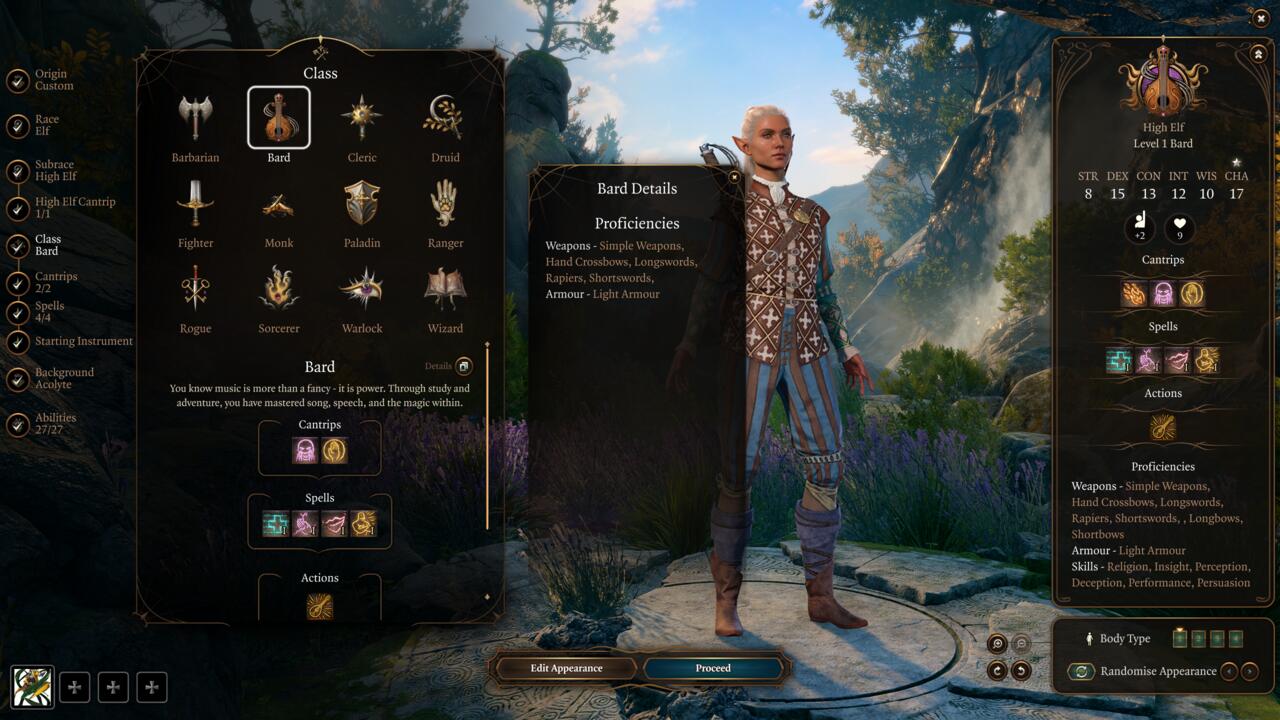
Bards are here for one reason and one reason only: They are a jack of all trades. Wait, come back. I know that’s not technically “one reason,” but hear me out. Bards are skilled with ranged weapons, they are decent with melee weapons, they have spells, they have healing abilities, they have buffs, and they have debuffs. Bards are great as the main character because they rely on Charisma, meaning you’ll be able to pass conversation checks much easier than Barbarians and the like. With tons of versatility, Bards are welcome in every party. Read our complete Baldur’s Gate 3 Bard guide.
Cleric
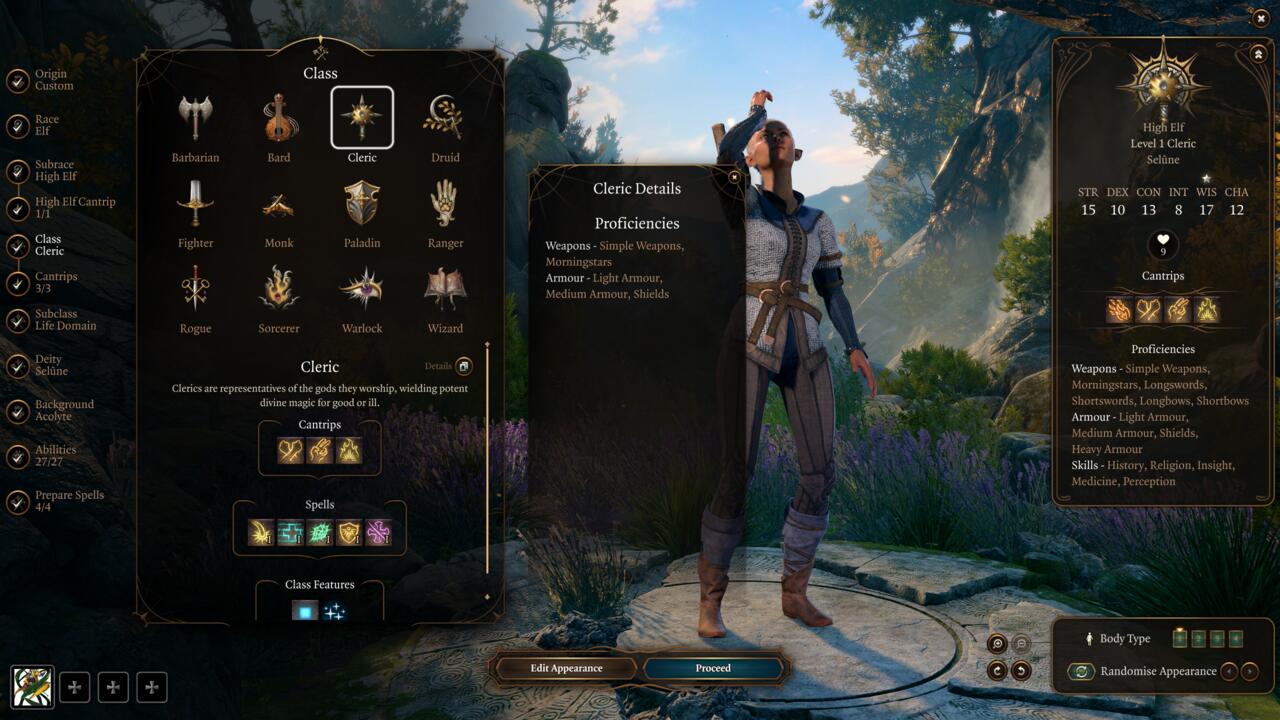
Clerics have long been one of the most desirable classes in Dungeons & Dragons, and with Baldur’s Gate 3, that isn’t changing. Clad in medium or heavy armor and wielding a wide variety of spells, including a wide range of rare healing and buffing abilities, Clerics will make sure your party makes it through even the toughest encounters intact.
Paladin
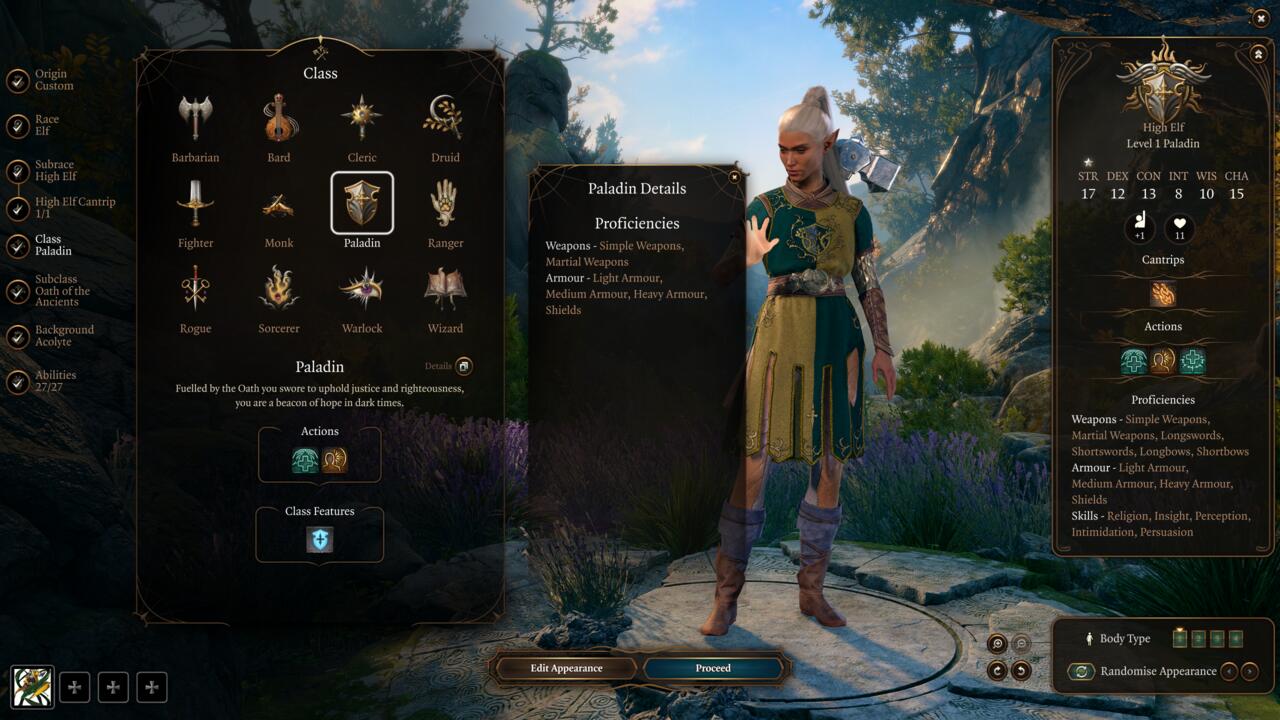
Paladins are part of the S tier for several reasons; durability, strength, and utility. Trading the Cleric’s spell utility for the ability to deal more physical damage with large two-handed weapons, the Paladin is an excellent combatant for the front lines, while still retaining the ability to bless, heal, and use its special Holy Smite ability to bring the pain to enemies (particularly the plentiful Undead enemies in BG3).
Sorcerer
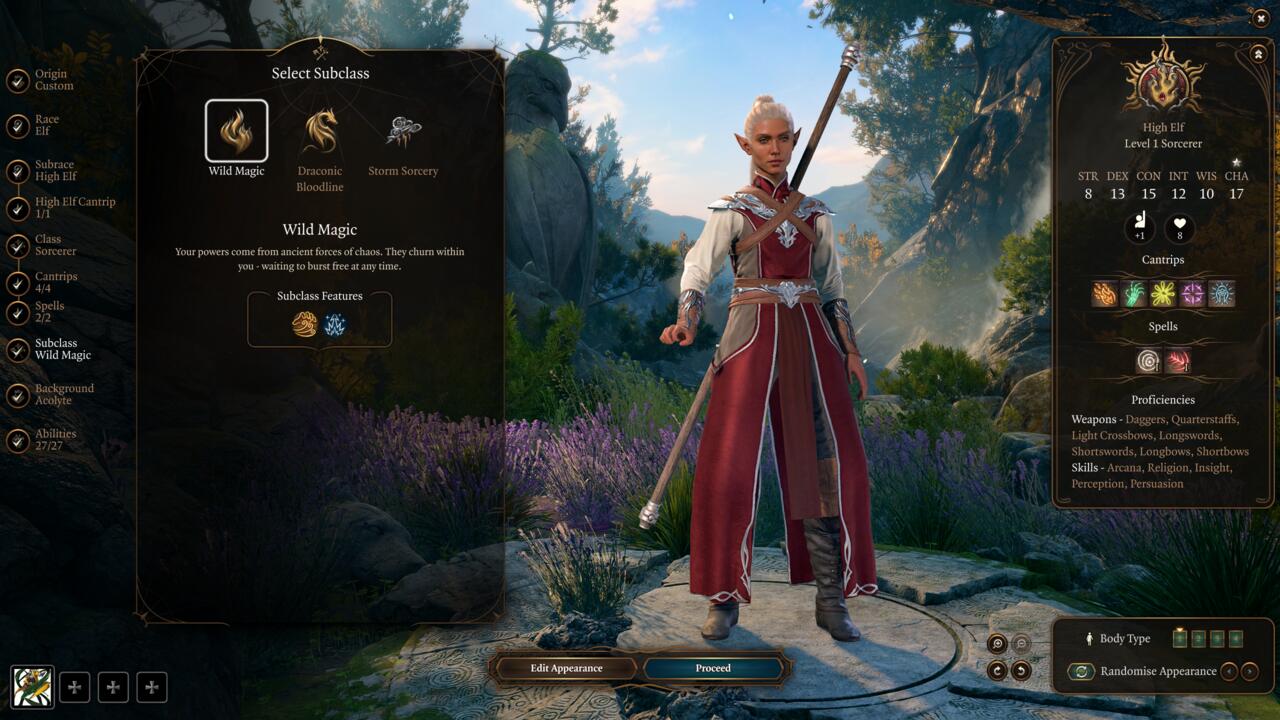
Sorcerers are more limited in available spells than their Wizardly cousins, and they don’t have as reliable, sustained access to damage as Warlocks with Eldritch Blast, but Sorcerers make every spell count, and they can turn on a dime. Being able to choose any spell they know at the moment, without memorizing, and then use Sorcery Points to twin-cast it, or make it go further than usual
A Tier Classes
This tier represents classes with high levels of power. While they may have flaws, they are still very strong in one area, or are strong in more than one area, giving more choices with how they can be built to complement the team.
- Barbarian
- Ranger
- Rogue
- Warlock
- Wizard
Barbarian
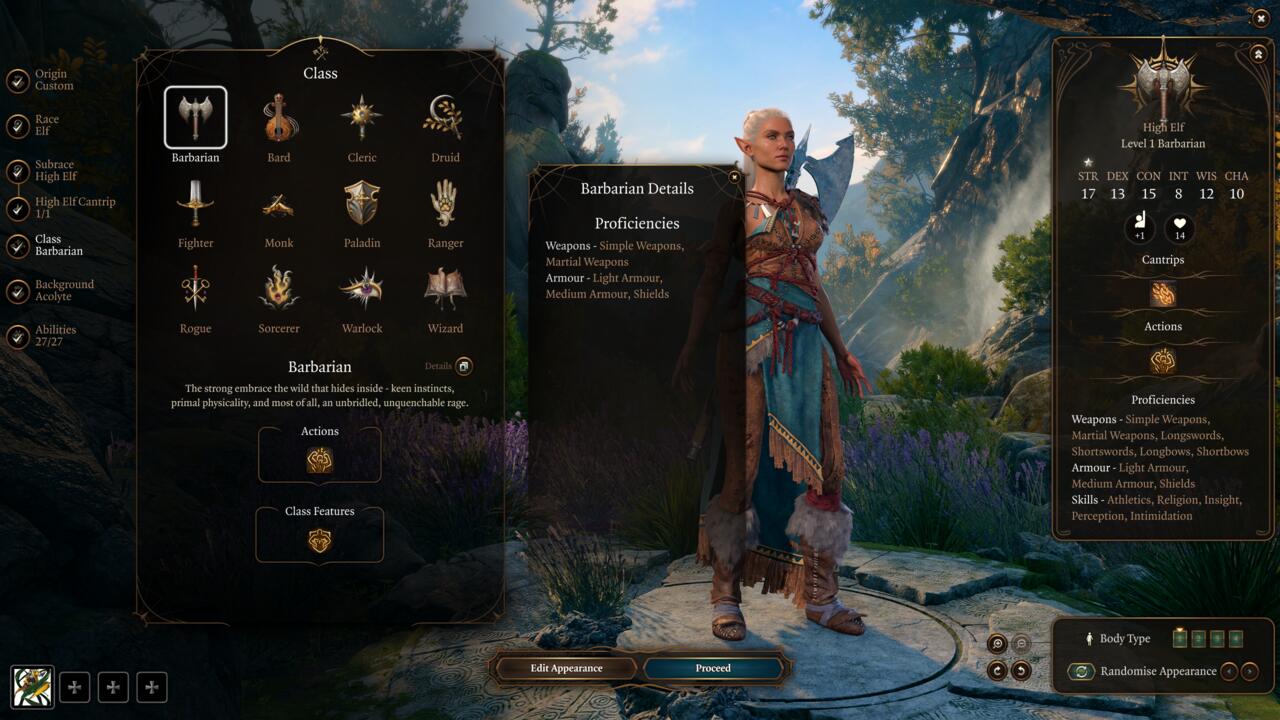
Barbarian is a great class that is completely dedicated to dealing melee damage and throwing stuff all over the place. While they are not as flexible as Fighters, Barbarians are fantastic at what they do, which is smash things, rage out, and bring swift ends to your enemies.
Ranger

Rangers are another flexible damage-dealing class with a bit of utility as well. They can stay safe at range while dealing good damage, they can enhance party member attacks with Hunter’s Mark, and (depending on your preferred subclass), they can even add another fighter to the fray with their Beast Master companion. They also have limited spell-casting ability, which lets them do some minor healing and more.
Rogue
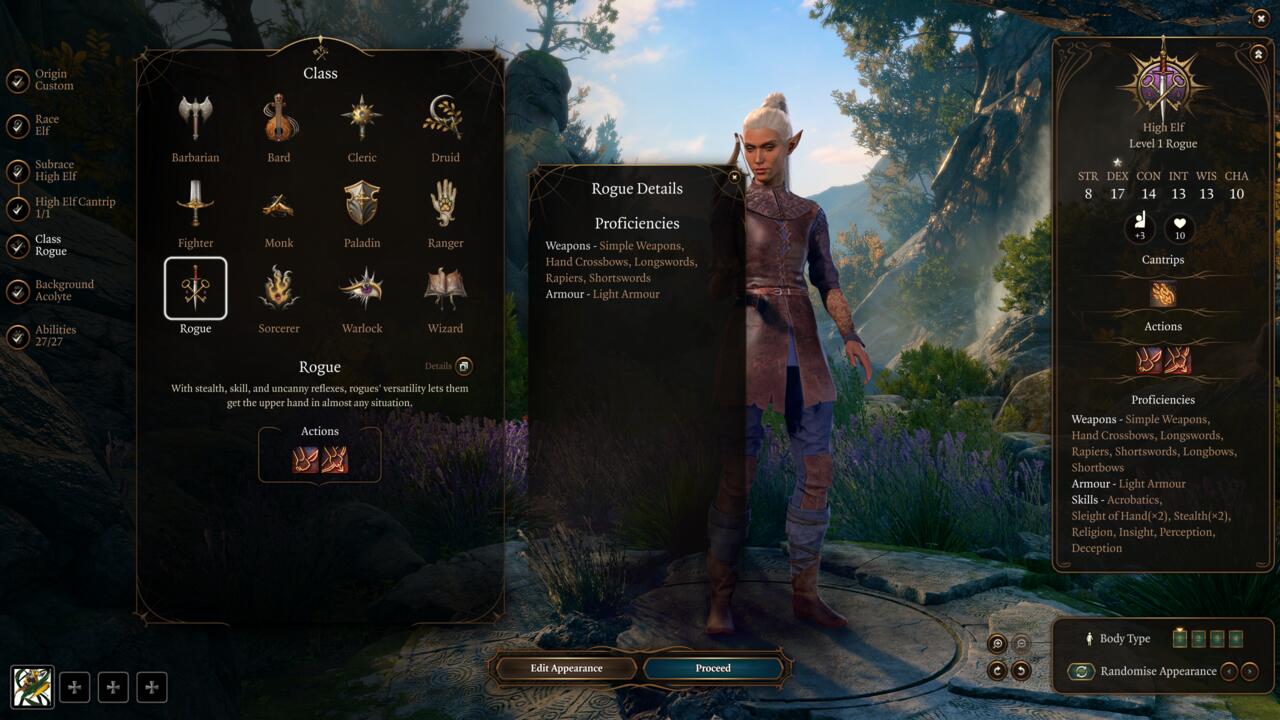
Rogues are incredibly helpful to have on your squad. With the ability to weave in and out of stealth during combat, they have very bursty damage, and outside of combat, they bring tons of utility. Steal whatever isn’t nailed down, pick locks to gain access to every chest and room, and generally be where you aren’t supposed to. They can also deal good damage from range, and have a lot in common with Rangers in that regard.
Warlock
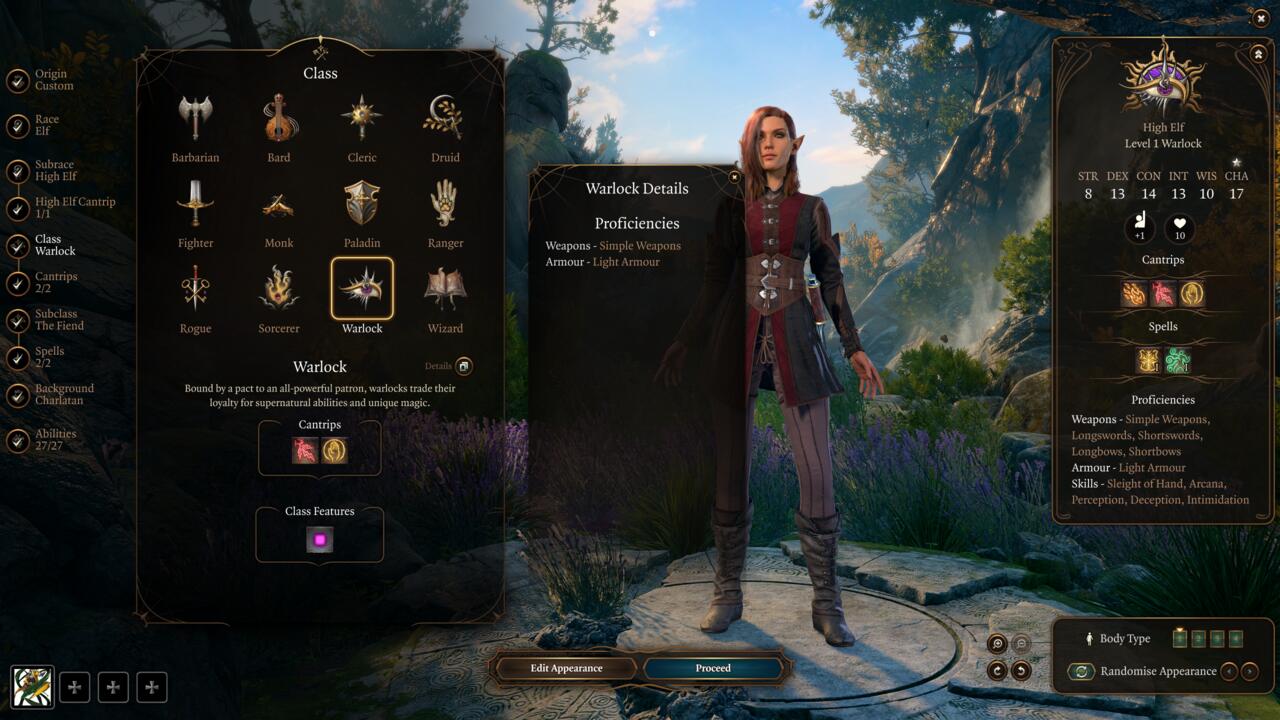
Warlocks don’t have the flexibility of Sorcerers, and they don’t have the all-encompassing nature of the Wizard’s spellbook. As a matter of fact, Warlocks have access to the fewest spells of any of the spellcasting classes, but the ones they have are incredibly powerful. Their spells are always cast at the highest possible level, and Eldritch Blast is a cantrip with (effectively) the same power as a Spell Slot ability, and it gains power as your character develops. They also have skill in melee combat, with proficiency in rapiers and other similar weapons, although you should still be very careful when taking them to the front lines.
Wizard
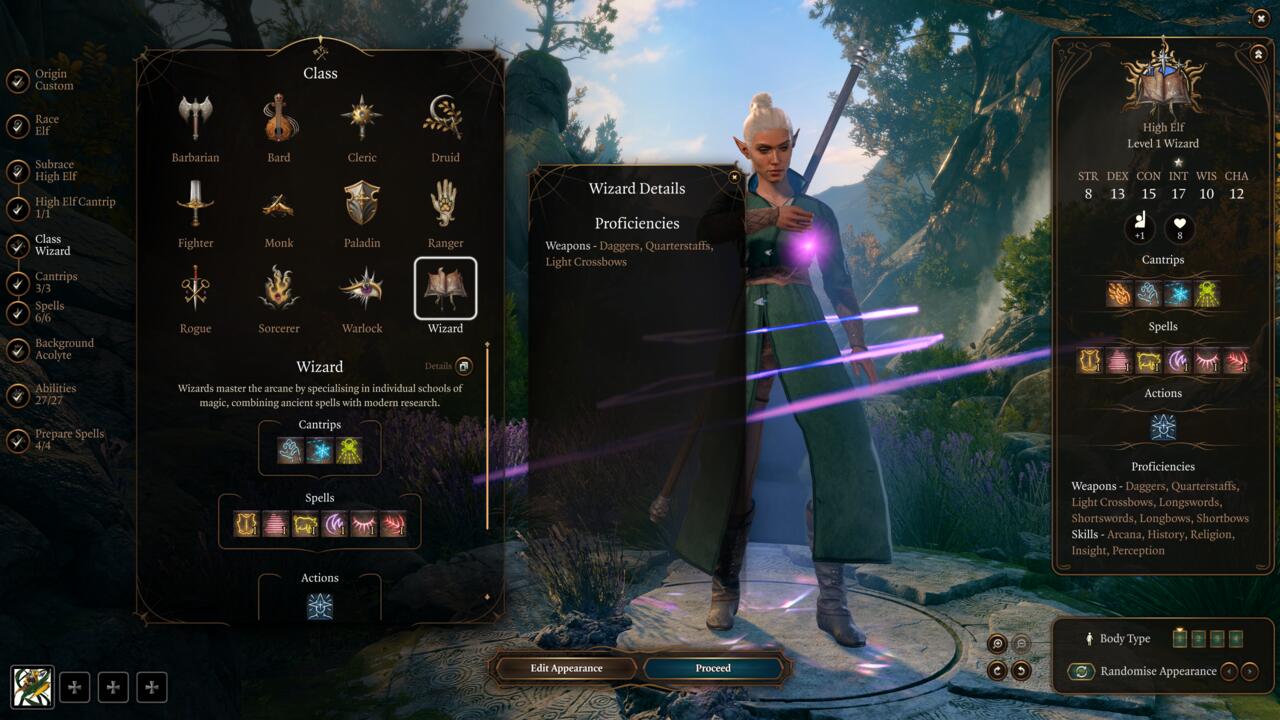
Wizards can do all manner of ridiculous things. Unlock doors, cause fogs to obfuscate combat encounters, call down grease pools, teleport, charm people, and the list goes on nearly forever. Wizards can also learn spells from scrolls you find or buy with a modest gold payment, and this ability (among others) make Wizards the most flexible, versatile, and tedious of the spellcasters in BG3. If you have a mind for absolute min-maxing, the skill ceiling on a Wizard is quite high, but if you don’t have patience for managing all of that, you’d be safer choosing the vastly more nimble Sorcerer.
B Tier Classes
Classes in B tier are missing that special something that S and A tier characters have. Whether their abilities are weaker versions of those classes, or they are just not as valuable, overall, these are classes you should take for flavor, but not much else. At least, not if you care about power.
Druid

With the ability to shapeshift, as well as access to a wide pool of spells, Druids are a very flexible class. They end up in B tier because while they have many strengths, none of them are particularly notable, particularly compared to other classes who have fewer possible roles. Jack of all trades, master of nine, indeed.
Monk
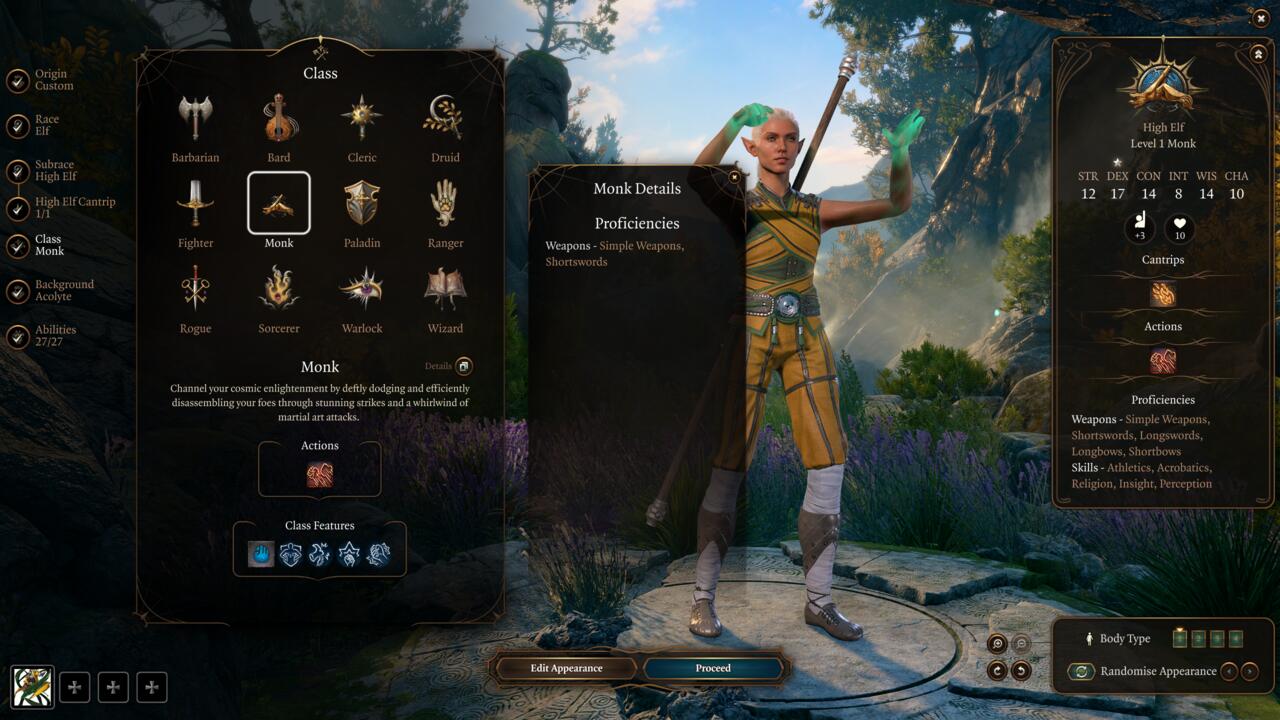
The monk is an interesting class that, like Druid, doesn’t excel in any one category, which is unfortunate, because they really only have one focus; dealing melee damage. That having been said, if you like characters that have free movement and martial arts flavor, you can still make room for one on your team. Read our full Baldur’s Gate 3 Monk guide.
We have many more guides to help you through Baldur’s Gate 3, including romance options, quest guidance, build suggestions, and more. Find everything in our Baldur’s Gate 3 hub.
The products discussed here were independently chosen by our editors.
GameSpot may get a share of the revenue if you buy anything featured on our site.
